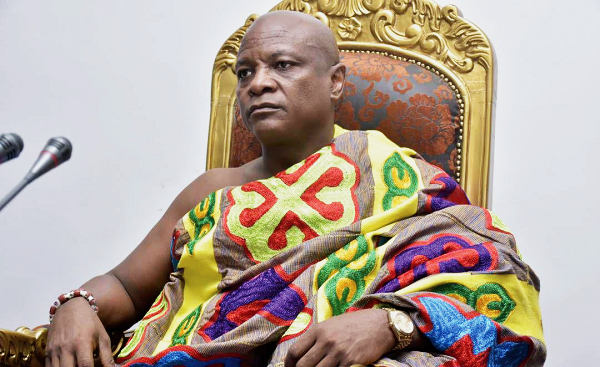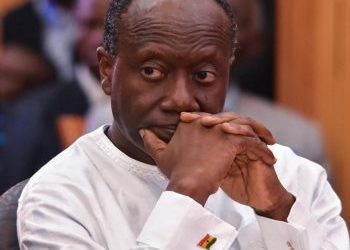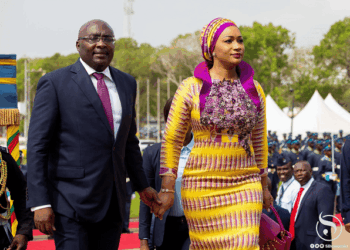The Agbogbomefia of Asogli State, Togbe Afede XIV has stated that only with constitutional reform and honest leadership can Ghana’s economy be rebuilt describing the country’s current state as being “like an orphan child, raped by the very people who have obtained our mandate to take care of her.”
Speaking on the nation’s current challenges during Teza (Asogli Yam Festival), Togbe highlighted the need for immediate change to address corruption and restore hope for a brighter future, as he further elaborated on issues of widespread corruption, reckless borrowing, mismanagement of national resources, environmental degradation from illegal mining, a collapsed economy, rising unemployment, growing desperation among the youth, and the urgent need to solve poverty and restore peace to the country.
According to Togbe, Ghana is at a critical juncture in its history. We are a country blessed with immense natural wealth—our land is fertile, our air fresh, and we have a young, vibrant population. But despite these blessings, our nation is in a state of crisis. Our economy has collapsed, and as a result, ‘our citizens are suffering.’ These facts are undeniable.
He further noted that Ghana has witnessed high inflation, largely driven by the depreciation of our currency. In just eight years, we have seen the cedi plummet from 4 to 16 cedis per dollar. Widespread unemployment plagues our youth and graduates, leaving many of them desperate, with little hope for the future. This desperation has manifested in rising absenteeism, strikes, demonstrations, and mass emigration.
The harsh reality our situation is reflected in alarming statistics: Eighty-one (81) reported suicides in the first half of this year out of 543 attempted. Compared to 48 suicides for the entire last year, one can sense the growing desperation among our people.
Moreover in the view of Togbe Afedo, the country is grappling with deep-rooted issues of greed and corruption, which have become significant barriers to the country’s development. He noted that these problems have replaced colonial exploitation, as those in power now engage in a reckless scramble for the nation’s resources. This situation has turned democracy into an enterprise benefiting only a select few. The rich and powerful continue to exploit resources meant for the poor, while institutions such as the judiciary, the council of state, the national house of chiefs, the military, and the police have been compromised, failing to protect the country’s democracy.
He didn’t hold back on expressing his disappointment, describing the country’s current state as being “like an orphan child, raped by the very people who have obtained our mandate to take care of her.” Togbe emphasized that corruption has become rampant, with an endless list of scandals. He pointed out how public servants continue to misappropriate scholarships meant for the less fortunate, while unnecessary judgment debts pile up. He questioned, “Where is the justice in this? Where is the freedom that allows us to speak out against these injustices?”
Togbe also highlighted the urgent need to address the growing environmental crisis caused by illegal mining. Over 100,000 acres of farmland have been destroyed, and it’s estimated that around $5 billion will be needed to reclaim these lands. Water bodies are being polluted, posing threats to human settlements, agriculture, and animal life. The devastation, he warned, will burden future generations if not addressed immediately. He urged leaders to take responsibility, stating, “If there are elders, we shouldn’t sit down and watch the destruction of our lands.”
On Ghana’s economic challenges, Togbe was direct in his assessment. He attributed much of the nation’s economic downfall to reckless borrowing and mismanagement of resources. He recalled telling a respected leader that “if Ghana were a company, we would have filed for bankruptcy,” a prediction that came to pass when the country defaulted on its debts in 2022.
The situation, according to Togbe, demands a new type of leadership—leaders who are honest, fair, humble, and guided by principles that ensure rapid development and create opportunities for all citizens. However, leadership alone, he emphasized, will not suffice. The constitution itself needs reform, as the concentration of power in one person has allowed for the abuse of that power. “A constitution that has concentrated power in one person is not good for our country,” he asserted.
As the country heads into elections, Togbe called on all citizens to look beyond partisan interests and focus on what truly matters—the development of Ghana. He urged the Electoral Commission to guarantee free and fair elections where the people’s mandate is respected, which is crucial to maintaining the peace and stability that have set Ghana apart in West Africa.
Speaking directly to the youth, Togbe encouraged them to unite and defend the cause of freedom and justice. He said “It is time for us all to come together and rescue the orphan called Ghana.”










Discussion about this post